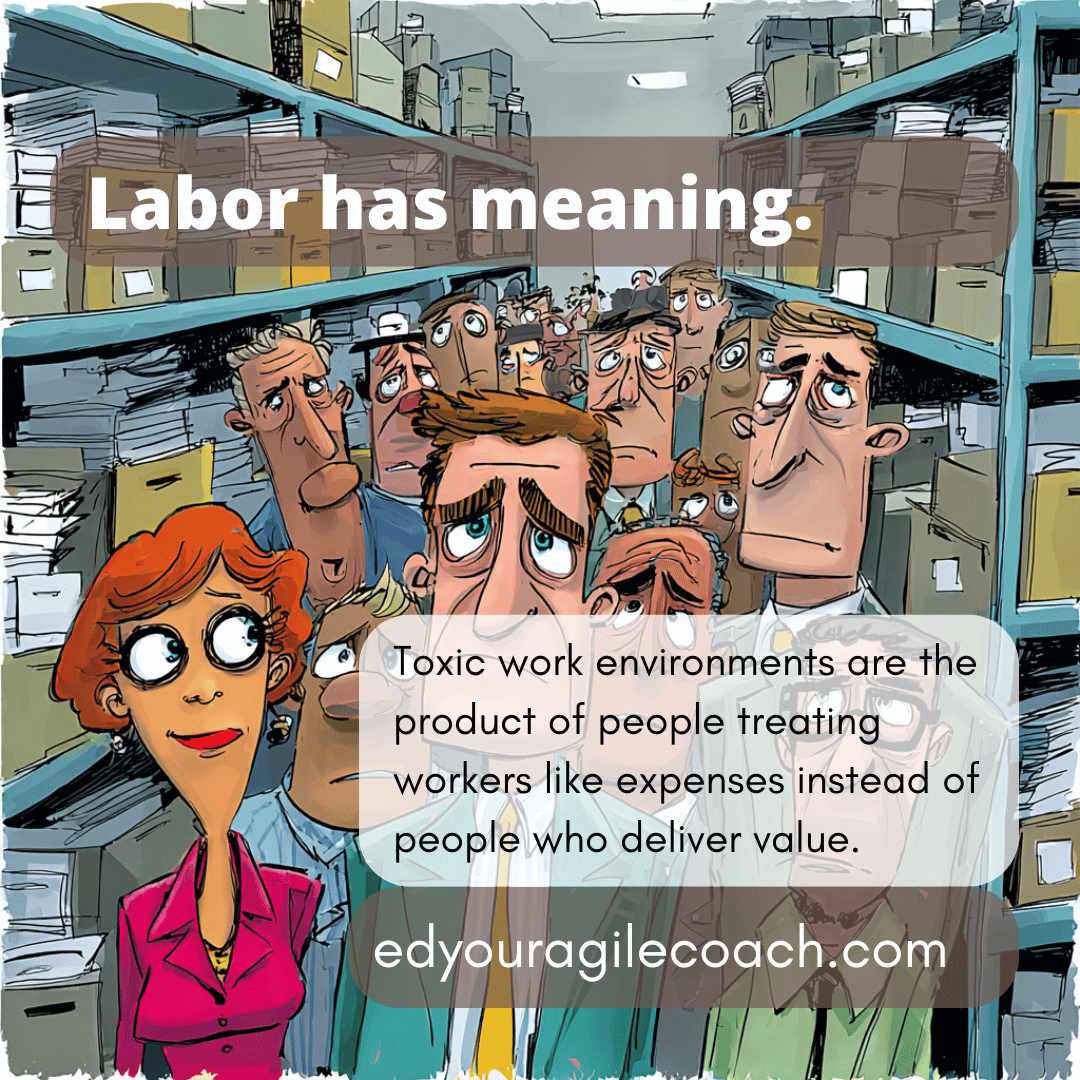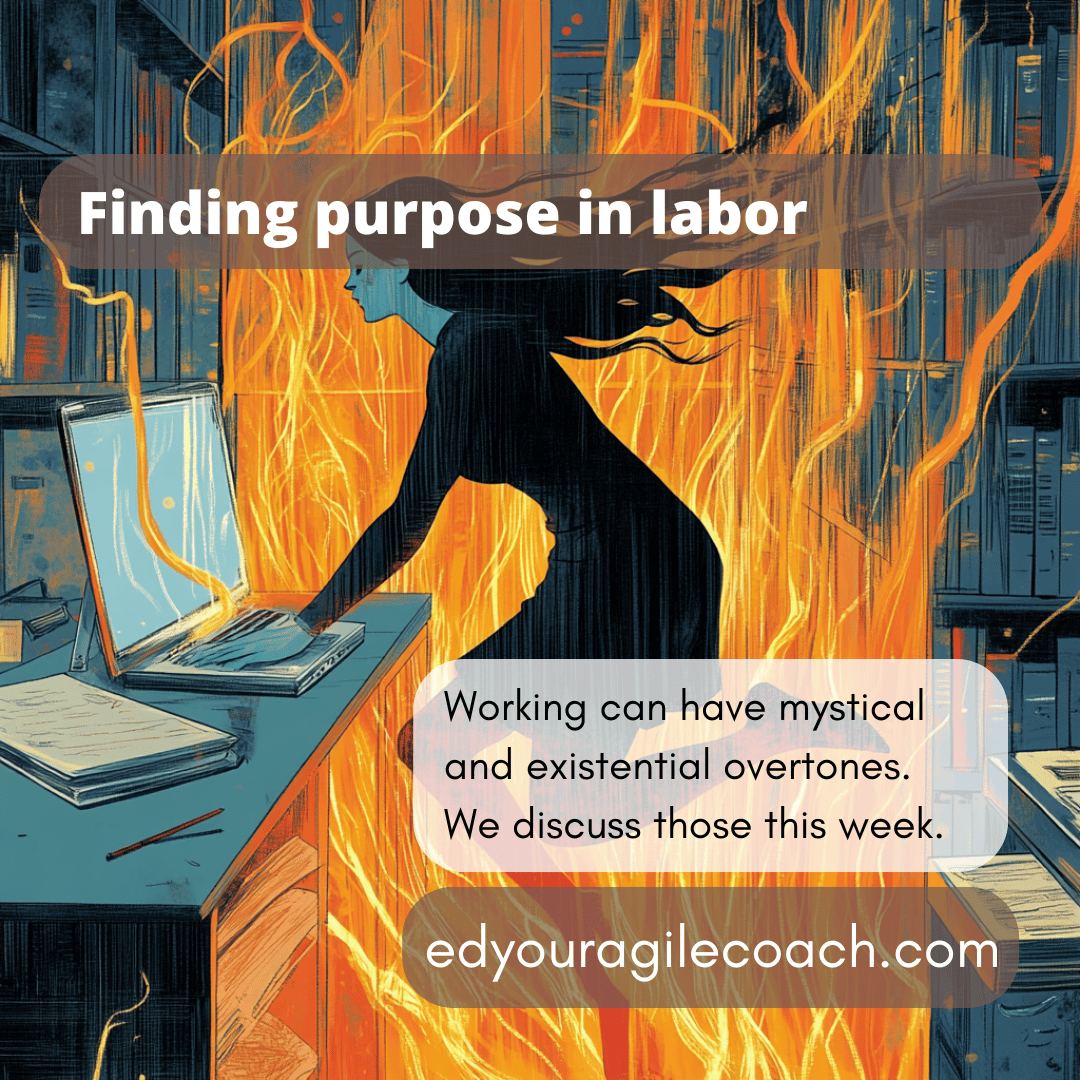When Work Loses Its Dignity

A year ago, I was looking for work and preparing for my PMP examination. I felt adrift, and the job market appeared broken. With Labor Day approaching, it seems fitting to reflect on that period and note that the business community often misperceives the people generating value.
When Milton Friedman wrote his famous article on the sole responsibility of a business being to create profit for its shareholders, it marked the culmination of a movement within economics and business education. It was also the beginning of a period of rampant inflation caused by the bills for the Vietnam War coming due. Add to the mix labor unrest and an oil embargo, which drove energy prices through the roof, and attitudes about work had to change. Newly minted MBAs were demanding that shareholders, rather than customers or employees, be given top priority.
Instead of viewing employees as valuable assets, business leaders saw them as expenses to be minimized, so they focused on automating jobs and outsourcing tasks to cut labor costs. Executives fought unionization at every level of the organization. Labor regulation would roll back, and wages would not keep pace with productivity gains.
It created considerable wealth as regulations became looser and workers had less influence in their organizations, at the same time. It made a yawning gap between the people who owned businesses and those who ran them. Adding debt to an organization to buy back stock is a short-sighted approach for the organization, but for the investors and owners, it is a bouquet of dividends and cash. Dan Davis points out that debt is also a tool for control; so, even if the share price improves, the organization still has to pay off that debt. Layoffs often follow cost-cutting measures, allowing companies to service their debt. It reduces human beings to excess inventory and objects to be purchased and sold. Even the most profitable companies, such as Microsoft and Meta, use layoffs to maintain healthy profits.
It creates a classic conflict which Karl Marx pointed out in the nineteenth century. The desires of capital, which seek to create wealth with minimal risk, conflict with the people who generate that wealth through their labor. Since Milton Friedman's essay, the needs of workers have been ignored and undermined as part of standard business practice.
I have endured this environment my entire career. I have been fired and laid off more times than I care to recall. I was forced to navigate a minefield of toxic situations, often unprepared and untrained for the challenges ahead. In the dog-eat-dog world of software consulting, knowledge is considered a valuable asset, so mentorship or sharing techniques is avoided to protect competitive advantage. I have suffered emotional and physical abuse from other peers and managers. In my darkest moments, I failed as a leader and dispensed my share of venom. When people feel like objects with no value beyond their job title or income, they become less caring and committed to doing good work. They are just marking time and collecting a check.
Victor Frankl notes that people find meaning in their lives through their deeds or encounters with others. Work should provide dignity and support for people. When companies treat employees like commodities to be bought, sold, and exploited, they fail to deliver value to their shareholders. Instead, we are experiencing short-term gains at the expense of long-term decline.
We must look at our labor force and treat them like people with hopes and dreams. Workers wake up each day and are the reason businesses continue to operate. Ignoring that is a recipe for turmoil and unrest. It is something to think about this Labor Day weekend.
Until next time.




Comments ()